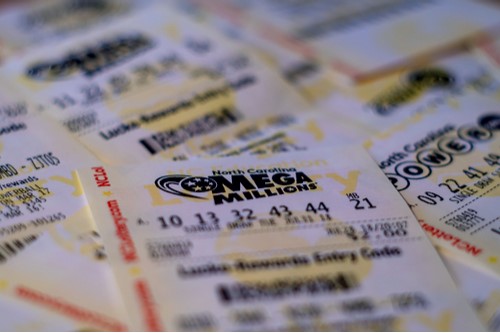- How would you feel if you left a massive lottery prize unclaimed? If you’re not investing in the stock market, that’s exactly what you’re doing.
- Today, Alexander Green explains why failing to invest in equities means you’re missing out on true wealth.
Last week you probably heard the national news story about the largest unclaimed lottery prize in Arizona history.
On June 5, someone bought a winning lottery ticket at a Circle K, about 20 miles west of Phoenix.
The winner was given 180 days to claim the $14.6 million grand prize. But no one ever showed up. So the state will now use the money for other purposes.
Can you imagine the reaction of the winner if that individual realized what he or she had done?
(In this case, a picture would truly be worth a thousand words.)
Yet here’s the part that may surprise you. I’ve known thousands of people who left similar sums unclaimed.
And just like the Arizona winner – or loser (depending on how you look at it) – they are completely oblivious.
Let me explain…
I took a job as a stockbroker at an international investment firm in the 1980s.
The Dow in August 1982 stood at a measly 775. The blue chip index is more than 35 times higher today.
That doesn’t include dividends, however, so that number massively understates the returns you could have earned over the period.
Had you put $2,900 a month into the Dow starting in 1982 and reinvested the dividends, it would have been worth over $15 million today. Yes, $15 million, more than the unclaimed Arizona prize.
Of course, $2,900 was a lot more money 37 years ago than it is today.
But if you had invested half as much, you’d still have an equity portfolio worth $7.5 million.
Or if you’d plunked only a tenth as much in the market – just $290 a month – it still would have compounded into more than a million-and-a-half dollars.
Bear in mind, that required no economic forecasting, no market timing, no political punditry, no stock-picking prowess. All it required was time, discipline and patience.
I spent 16 years in the money management business and know hundreds of people who made fortunes for themselves investing in equities.
Today those folks work only if they want to and spend their time where they want, with whom they want, doing what they want. That’s what financial independence is all about.
However, I knew thousands more men and women who could have done something similar but didn’t. Not even close.
They sat in cash. Or bought bonds. Or hoarded gold.
Were they uneducated? No, many had college or postgraduate degrees.
Were they ignorant? No, most were well-informed individuals or even successful businesspeople.
Were they foolish? No, most were practical men and women with plenty of common sense.
So what happened? Two things, mainly.
First, they never learned in school how equity markets work – or why we even have a stock market.
It’s a shame that students aren’t taught investment basics as part of a general high school education.
Public schools, in particular, act as if saving and investing are subjects that either can’t be taught or students should figure out for themselves.
Given this depressing reality, it is any surprise that 78% of Americans live paycheck to paycheck and can’t put their hands on $400 in the event of an emergency?
Second, they succumbed to the relentless negativity of the national media.
Pick up the paper or turn on the TV – it doesn’t matter which year – and what do you see? War. Terrorism. Crime. Corruption. Poverty. Debt. Racial tensions. Natural disasters. Political dysfunction. Ecological destruction.
It’s easy to reach the conclusion that we live in a horrible country at a terrible time and the world is rapidly going to hell in a handbasket.
I’m not about to deny that our nation and the world face serious problems. We do.
But what’s lacking is context.
Americans are living in the richest country at the most prosperous time in history.
Most of us live in peace and with a level of affluence that our ancestors just a few generations removed could never have imagined and would have viewed as the realization of some utopia.
Yet that’s not how the media depicts things.
Why would you risk your hard-earned capital in the stock market if everything is bad and getting worse?
You wouldn’t. And most didn’t.
Yet those of us who did profited handsomely.
Some will say that the people who invested in stocks and reaped generous returns over the years didn’t maintain a better perspective or act more judiciously. They were just “lucky.”
Notice, for instance, how political candidates often talk about wealth in terms of “the fortunate” and “the less fortunate.”
But here’s what these pols either don’t know or choose to ignore. The average return that common stocks have delivered over the past 37 years is almost identical to the returns they generated in the previous 150 years.
Ten percent a year. (And, of course, exceptional stocks returned substantially more.)
Will the broad market continue to deliver double-digit returns – along with the usual hair-raising bumps – in the decades ahead?
As Patrick Henry famously said, “I know no way of judging the future but by the past.”
Good investing,
Alex
